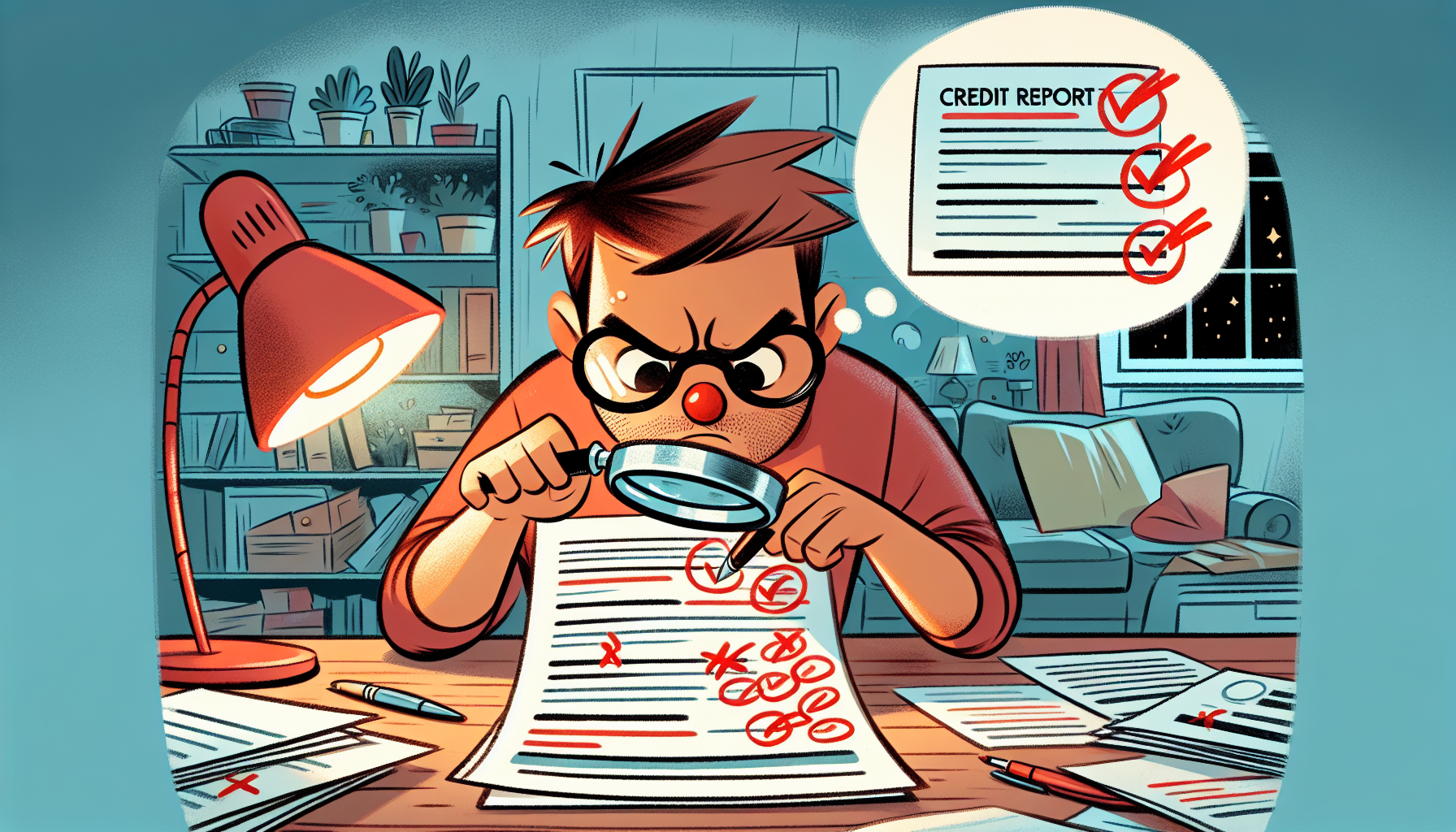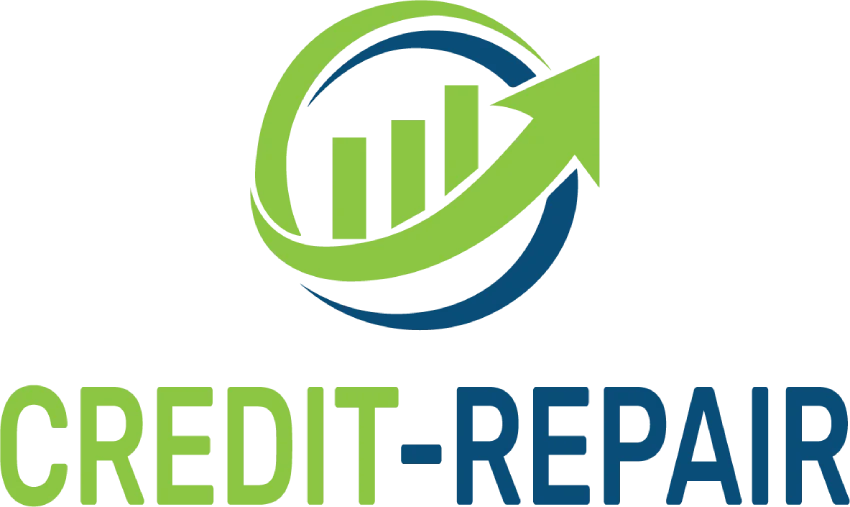Improving your credit score by yourself is possible. This article will explain clear steps on how to fix your credit yourself, including the process of credit repair. You’ll find out how to check and correct your credit reports, manage payments, and use credit wisely.
Key Takeaways
- Regularly check your credit reports for inaccuracies and identity theft; review them from each major bureau at least annually.
- Dispute any errors found on your credit report promptly to ensure accuracy and protect your credit score.
- Maintain on-time payments and low credit utilization to significantly enhance your credit score and financial opportunities.
Check Your Credit Reports Regularly

It’s crucial to periodically inspect your credit reports from credit bureaus as they provide an overview of your credit history and can highlight any inaccuracies that may be impacting your credit score negatively. You are entitled to one free report from each of the major bureaus—Equifax, Experian, and TransUnion—every year.
By examining your credit reports once a year, you have the opportunity to monitor changes in your credit history as well as detect early signs of potentially damaging negative information or identity theft. This foresight helps protect the health of your financial life.
Ensure that you leverage the full potential offered by these reports by scrutinizing for any errors such as mistaken personal details, account records, or indications of fraudulent activities on your accounts. Swift identification and resolution will prevent more serious repercussions down the line. The reliability of what is depicted in regards to financial conduct depends largely upon maintaining precision within this document.
Consistent reviews are vital for sustaining an intact and robustly secure credit profile since they offer continuous surveillance over historical data pertaining to one’s finances while also defending against various types of fraud and identity theft.
Dispute Errors on Your Credit Report

After retrieving your credit reports, it’s essential to examine them thoroughly for any discrepancies. Errors could manifest as incorrect entries of Social Security numbers, names, account details, or payment histories. Even seemingly minor mistakes can have a substantial effect on your credit score.
In the event that inaccuracies are identified within your report, you should initiate disputes with the relevant credit bureaus. It’s advisable to reach out to both the bureau and the provider of the erroneous data. Construct a comprehensive dispute letter outlining who you are, what error has been made and attach any corroborative documentation. Using certified mail to send these disputes is advised as it creates an official record of dispatch and acknowledgment.
While you can handle disputes yourself, a credit repair company can also assist in this process, though it may come with significant costs. It’s important to understand that under the Credit Repair Organizations Act, you have the legal right to address inaccuracies on your own.
The obligation falls upon credit reporting agencies to investigate contested items on your report and communicate their findings typically between 30-45 days after receiving your dispute claim. If they regard your dispute as baseless or insubstantial, they must notify you within five business days from submission date. In order to keep track successfully throughout this process, you should retain duplicates of all related communications.
Should investigations conclude unfavorably regarding disputed items in question, one retains options. You’re allowed to add a personal statement directly onto your credit report reflecting your perspective. This enables potential creditors to gain insight into your active engagement in managing your financial reputation. Challenging questionable elements found is critical to maintaining the accuracy of the information represented by your report.
Prioritize On-Time Payments
Your credit history is primarily influenced by your payment history, which constitutes 35% of your credit score. By consistently paying on time, you can either preserve or boost your credit scores. To prevent missed payments, consider using autopay services or setting up reminders.
Even just making the minimum required payments punctually can have a beneficial impact on your payment record. Such timely remittances signal to creditors that you are a trustworthy borrower and progressively strengthen your credit scores. Addressing delinquent accounts quickly can also markedly influence your scores. Hence continuing with prompt payments plays an essential role in keeping good credit health.
Adopting these practices into regular financial management supports sustaining robust credit scores and overall fiscal wellness. Committing to timely disbursements helps dodge late penalties and additional interest charges while fostering a positive credit history—paving the way for enhanced financial prospects.
Reduce Your Credit Utilization Ratio

Maintaining a low credit utilization rate is essential for a good credit score. Your credit score, which may be influenced by 20% to 30% by credit utilization, is essentially the ratio of your current credit card balances to your total available credit limit. It’s crucial for enhancing your overall financial credibility to keep this rate under 30%, ideally much lower. This means you should strive to owe significantly less than the limits on each of your cards.
To better manage and improve your credit utilization ratio, focus on reducing outstanding balances on your cards. When you pay down these amounts before they are reported to the bureaus—thus lowering what you owe—it favorably affects your rating. Consider asking for a higher limit on existing accounts. Doing so can result in a smaller relative usage percentage.
It’s beneficial also to make fewer charges across all cards while setting up notifications that alert when approaching high balance levels to help maintain below the recommended 30%. If possible, targeting even less than a 10% utilization rate will demonstrate exemplary fiscal responsibility and could substantially enhance one’s scores over time.
Manage Existing Credit Accounts Wisely

It is essential to handle existing credit accounts with care to maintain a robust credit score. Preserving the longevity of your credit history can be achieved by not closing an old credit card account even after you have cleared the balance, as this could reduce the overall average age of your accounts and potentially detract from your score.
It’s advisable to exercise restraint when it comes to applying for new credit. Requesting several new lines of credit in a short timeframe may result in multiple hard inquiries that might temporarily diminish your credit score. By actively using older accounts while avoiding frequent applications for additional ones, you help keep a consistent and stable record on your personal or business financial report.
Adhering strictly to these strategies helps sustain the mean duration across all existing lines of credit, which plays an important role within one’s total borrowing track record thus bolstering their current standing while demonstrating sound debt management skills before prospective creditors.
Explore Additional Ways to Build Credit

Individuals starting with a poor credit score often face significant challenges in building credit, but the strategies mentioned here can help improve their situation.
There are several other strategies to establish credit, particularly for individuals with a less than stellar credit score or minimal credit history. For instance, one might consider obtaining a secured credit card, which involves making a cash deposit that equals the assigned credit limit. By regularly paying on time with such cards, you can contribute positively to your credit history since payment activities are communicated to the major bureaus similar to conventional cards.
An alternative approach is becoming an authorized user on another person’s existing account. This allows you to benefit from their established positive financial behaviors and possibly elevate your own score more quickly. It’s crucial that the card issuer reports back about authorized users so this technique can be successful.
Credit-builder loans also serve as an effective mechanism for creating payment histories by holding borrowed amounts in savings accounts until they’re completely paid off.
Services like Experian Boost provide opportunities to earn recognition for punctual payments of certain expenses such as utility bills and mobile phone charges—expenses not typically recorded in standard reporting practices.
By exploring these various methods of building up your personal finances responsibly, it becomes possible to select a plan tailored specifically towards enhancing your financial status and reaching long-term objectives.
Seek Professional Advice When Needed
At times, handling credit independently can prove to be quite daunting. It might be wise to seek professional assistance under such circumstances. Engaging with expert credit counselors allows for personalized advice catered specifically towards effective debt management. These experts provide custom strategies and also have the capacity to negotiate with creditors on an individual’s behalf.
Credit repair companies can also play a role by disputing errors on credit reports, but it is crucial to research these companies carefully before seeking their services. Some may overstate their capabilities or engage in questionable practices, and they often charge significant fees. Consumers can often undertake similar disputes themselves without incurring costs.
A reputable credit counseling agency, particularly those non-profit entities that adhere to the standards of the National Foundation for Credit Counseling, prioritizes client support. They assist in developing a debt management plan which consolidates various debts into a single payment that is easier to manage, thus simplifying financial tracking.
Turning to professional help offers essential tools and backing necessary for addressing intricate credit issues while paving the path toward improved fiscal health in your future endeavors.
Summary
In conclusion, fixing your credit yourself is a feasible and empowering process. By regularly checking your credit reports, disputing errors, prioritizing on-time payments, reducing your credit utilization ratio, managing existing credit accounts wisely, and exploring additional ways to build credit, you can significantly improve your credit score.
Taking these steps can open doors to better financial opportunities and stability. Remember, maintaining a healthy credit score is an ongoing process, and staying proactive is key to long-term financial success. Start implementing these strategies today and take control of your credit future.
Frequently Asked Questions
How often should I check my credit reports?
It is advisable to review your credit reports annually from the three major credit bureaus to maintain oversight of your credit history and promptly identify any errors.
What should I do if I find an error on my credit report?
Should you spot a mistake in your credit report, it is imperative to immediately contest the erroneous data by reaching out to both the credit bureaus and the entity that supplied the incorrect details. Furnish them with your personal information, an explanation of the discrepancy, and any corroborating documents.
Taking such decisive action is critical for maintaining the integrity of your credit report by confirming all recorded information is precise.
How can I ensure I make on-time payments?
Consider implementing autopay or utilizing payment reminders to effectively manage your bill schedule and ensure punctual payments.
Taking these preventative measures can aid in sidestepping late fees while also helping you preserve a solid credit score.
What is a good credit utilization ratio to maintain?
For a robust credit profile, strive to keep your credit utilization ratio under 30%, though dropping it below 10% is even more advantageous.
A lower credit utilization evidences prudent management of credit.
When should I seek professional credit counseling?
When managing credit becomes too burdensome or you are having difficulty staying current with your debt repayments, it is advisable to pursue professional credit counseling.
Such counselors are equipped to offer tailored advice that will assist in steering your financial circumstances back on track.
Table of Contents
Get Your Credit Repaired With credit-repair.com
Google Review:
or
WHY CHOOSE US
We also would counsel you on real, legal, and ethical credit repair for clients rebuilding their life and credit ratings after hardship. Achieving financial freedom is the ultimate dream allowing you to live the life you want to enjoy. Get the help of a professional credit repair company by contacting us.
Our credit restoration services are tailored to your unique situation, and we never make you pay for anything you don’t need. When you sign up for either our Essentials or Essentials Plus packages, you can rest assured that you’ll be receiving the bare minimum of care necessary for your specific situation. You can opt for additional customization options to further tailor our offerings to your specifications. In this manner, you won’t overpay for perks you don’t use. This is the essence of adaptability.






